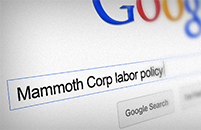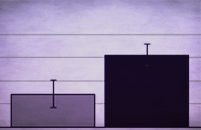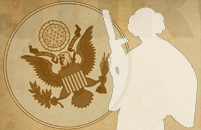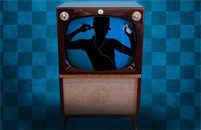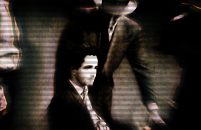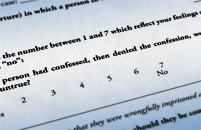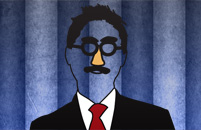Articles by Category
Articles by Issue
Recent Comments
- Stephen Brodsky on Harming Children: Uncovering and Overcoming Bias When Defending Sex Crimes Against Children
- Laura on Courtroom Attire: Ensuring Witness Attire Makes the Right Statement
- Members selection — Court-Martial Trial Practice Blog — February 22, 2014 on Why Do We Ask Jurors To Promise That They Will Do the Impossible?
- Video: Pryor Greed and Lawyers | Parents Rights Blog on Ethical Issues in Racial Profiling
- On the relationship between ideological and demographic diversity on Inaccuracy in Political Self-Perception: Young Adults Are Not as Conservative as They Believe
- Taylor Bishop on Tips for Preparing the Expert Witness
- Thanks for stopping by…. « The Jury Room on Book Review- Social Media as Evidence: Cases, Practice Pointers, and Techniques
- Thanks for stopping by…. « The Jury Room on Book Review: The Juror Factor: Race and Gender in America’s Civil Courts
Voir Dire & Jury Selection Archive
-
Knowing When and How to Indoctrinate
by Alan Tuerkheimer, M.A., J.D.Posted on August 1, 2013 | 2 CommentsIt’s time for voir dire, but is anybody listening? Are jurors listening to attorneys? Are attorneys listening to jurors? More often than not the answer is no. Regardless of case type or jurisdiction, jurors are checking out. Their attention spans are flat-lining during a crucial phase of trial – voir […] -
Favorite Thing: American Jury System- The Optimal Jury Trial Videos
by ASTC Member Trial ConsultantsPosted on August 1, 2013 | 1 CommentVideos from the ABA’s 2012 National Symposium of the American Jury System: The Optimal Jury Trial are now available for viewing on line. http://www.americanbar.org/groups/justice_center/american_jury.html The symposium included panels on jury size and jury selection, jurors asking questions, giving preliminary jury instructions on the law, allowing attorneys to make interim statements […] -
The Power to Judge: Social Power Influences Moral Judgment
by James McGee, M.A.Posted on March 31, 2013 | 9 CommentsIn which direction does social power change how we see case facts and hear your story? Original research with tips on application. -
Avoiding Jury Duty: Psychological and Legal Perspectives
by David M. Sams, J.D., LL.M. and Tess M.S. Neal, Ph.D. and Stanley L. Brodsky, Ph.D.Posted on January 31, 2013 | 10 CommentsYou've seen the TV shows, movie references, online posts and comics derogating jury service. You've probably even heard the outrageous reasons for being unable to serve like "It wouldn't be fair since I'm psychic" or "I can't serve since I've been a victim of homicide myself". But do you have a strategy for figuring out who to strike among the jury-avoidant on your panel? -
Intergenerational Law Offices, Intergenerational Juries: Values, Priorities, and Decision-Making
by Douglas L. Keene, PhD and Rita R. Handrich, Ph.D.Posted on January 31, 2013 | 7 CommentsHow are the generations alike and different NOW? And what does that mean for you in the office and in the courtroom? A comprehensive overview. -
“Only the Guilty Would Confess to Crimes” : Understanding the Mystery of False Confessions
by Douglas L. Keene, Ph.D. and Rita R. Handrich, Ph.D.Posted on November 28, 2012 | 22 CommentsWhy would anyone confess to a serious crime they did not commit? It doesn't make sense to us! And yet, it happens. Here's why. -
False Confessions: “I Can’t Believe I Said That”
by Diane WileyPosted on November 28, 2012 | 2 CommentsWhat do you need to include in that supplemental jury questionnaire (SJQ) for a false confessions case? -
Musings from the Deliberation Room: The Impact of Humor on Juror Decision-Making
by Jaime Bochantin, Ph.D.Posted on November 28, 2012 | No CommentsHow humor helps (or hinders) deliberations and how you can use humor style in voir dire. -
Subtle Contextual Influences on Racial Bias in the Courtroom
by Karenna F. Malavanti and Megan K. Johnson and Wade C. Rowatt and Charles A. Weaver, III.Posted on May 29, 2012 | 13 CommentsAre we doing enough to address bias in the courtroom? This research would say we are probably not--as it examines the impact of religious cues on racism in the courtroom.
![Knowing When and How to Indoctrinate It’s time for voir dire, but is anybody listening? Are jurors listening to attorneys? Are attorneys listening to jurors? More often than not the answer is no. Regardless of case type or jurisdiction, jurors are checking out. Their attention spans are flat-lining during a crucial phase of trial – voir […]](https://thejuryexpert.com/wp-content/uploads/indoctrinate.png)
![Favorite Thing: American Jury System- The Optimal Jury Trial Videos Videos from the ABA’s 2012 National Symposium of the American Jury System: The Optimal Jury Trial are now available for viewing on line. http://www.americanbar.org/groups/justice_center/american_jury.html The symposium included panels on jury size and jury selection, jurors asking questions, giving preliminary jury instructions on the law, allowing attorneys to make interim statements […]](https://thejuryexpert.com/wp-content/uploads/favorite_thumb1.png)
